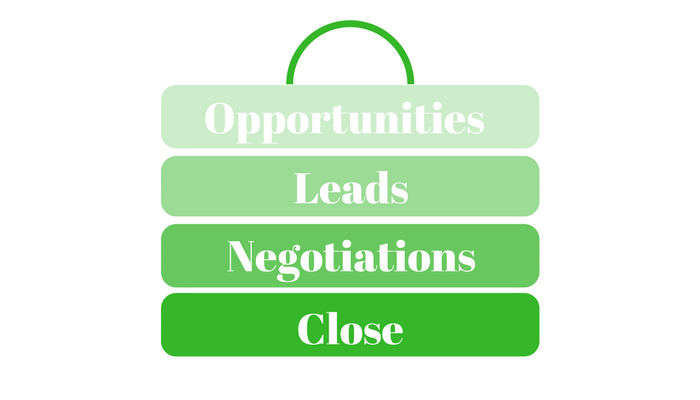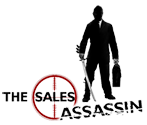
Improving your sales isn’t a secret: it’s a skill. Here are three skills to improve your close rate, as published in HVACR Business.
Each and every sales professional must be a leader — a person who is willing to take control of a sales opportunity, and then lead customers to a close by being trustworthy, truthful and possessing integrity. Closing the sale is the most important part of the sales process. Pitching a client is an investment in your time and resources. The higher your closing rate, the better your investment. Closing the sale is a skill every sales professional must learn.
For some, closing the sale comes naturally. But for others, sales closing skills need to be learned, practiced and perfected. The critical point is that closing skills can be learned by those who are willing to listen and practice. Here are three skills to improve your close rate.
1. Solve A Problem
To close the sale, you must solve your prospect’s problem. They don’t care about your problem, which is your need to run a profitable business. Your prospect is talking to you for one reason, and one reason only — because they have a need that’s not being met.
Your prospect may think they know what they need to solve their problem, and that’s why they’re talking to you. But often prospects don’t know how to solve their problem, and that’s where your expertise comes in. Don’t assume your prospect can connect the dots. You’re the expert, so use this opportunity to educate them — after you understand their problem.You need to stop talking and start listening so you can understand their problem, and then tell them how your product can solve their problem.
- Sales success is about building relationships, not about the one-time deal.
- If your prospect thinks they need a $5,000 system while a $1,500 unit will solve their problem, explain your products and solution and sell them the $1,500 unit.
- Not only will they come back to you when they need something else, they’ll recommend you to their friends and colleagues and help you build your business.
Solving your prospect’s problem is key to closing a sale.
2. Understand Urgency
Does your prospect need a system this week, next week or next year? Does he need one unit, or an assortment of products? And if they need something this week, can you deliver? Understand your prospect’s urgency and timeline so that you can not only meet, but also exceed their expectations. If the client is remodeling and another vendor fell through, and you can solve their problem by delivering and installing your system within 24 hours, you become their hero.
But if you commit to installing within 24 hours, then the job gets delayed and isn’t complete for two weeks, you’ve become their zero … just another salesperson who can’t deliver on a promise.
- Ask what factors are driving their delivery date. Sometimes, client education is part of the sales closing process.
- Your client may think they need that unit installed within 24 hours. But as an expert, you may know the unit doesn’t need to be installed for 72 hours, and you can deliver that.
- Don’t promise what you can’t deliver, thinking you know better than your prospect. Instead, explain what you can deliver and under what circumstances, and why that will help your prospect, then deliver what you promised. You’ll be their hero.
Understanding your client’s urgency and whether you can meet that timeline is necessary to close the sale.
3. Always Be Prepared to Close
Salespeople are notorious for practicing ABC: Always Be Closing. Most of the time, the pitch to close process takes time — there is a lag period where your prospect is making a decision about which solution best meets their immediate need. Other times, your prospect is ready to close and if you don’t close the deal, someone else will.
Salespeople are often taught to follow a sales process. In fact, I train salespeople to follow a specific client qualification process: Opportunites, Leads, Negotiations, Close. But what if your prospect hasn’t been trained in your sales process? What if they’re ready to go straight from Lead to Close?
Nothing can cool a sale faster than telling the client you’ll send them a contract when you get back to the office, or that you’ll run those numbers when you’re in front of your laptop. Technology has made sales more efficient.
- You should always have your sales contract, material costs, delivery availability and other key negotiation factors on hand when you’re talking to a prospect.
- Keep your sales contract and materials with you whenever you’re talking to your prospect.
- People are fickle: while your goal is not to rush an uninformed prospect into a sale, if your client is ready to buy and you aren’t ready to close, they may find another seller.
- Treat every sales pitch opportunity as a sales close opportunity and come prepared with all the information you need to close the deal.
- Increasing your close ratio is the best way to increase your sales. When you’ve identified sales opportunities and leads, converting those leads into contracts may take time or it could happen very quickly.
- Buyers today tend to do their research, know about the competition and are aware of prices before they actually talk to a salesperson.
Your prospect relies on your expertise and ability to explain the value of your solution. Learning and practicing closing skills are key to turning a pitch and negotiation into a sale.
about Anthony Caliendo:
As a corporate sales consultant, trainer and coach, I’m also an entrepreneur and sales professional with over 20 years of successful sales and sales management experience. My expertise in sales, marketing and business development spans from small business to international companies.
I’m the best-selling author of The Sales Assassin: Master Your Black Belt in Sales, winner of the 2015 USA Book News business book award for entrepreneurs and small business, winner of the 2016 Book Excellence Award for Sales and Marketing, and a 2016 finalist in The Indie Book Awards.
I provide personal sales coaching; and consult, speak and train about growing and motivating your sales team to businesses, corporations and conferences across the nation, as well as a guest contributor and sales expert for TV and radio, and professional organizations.
